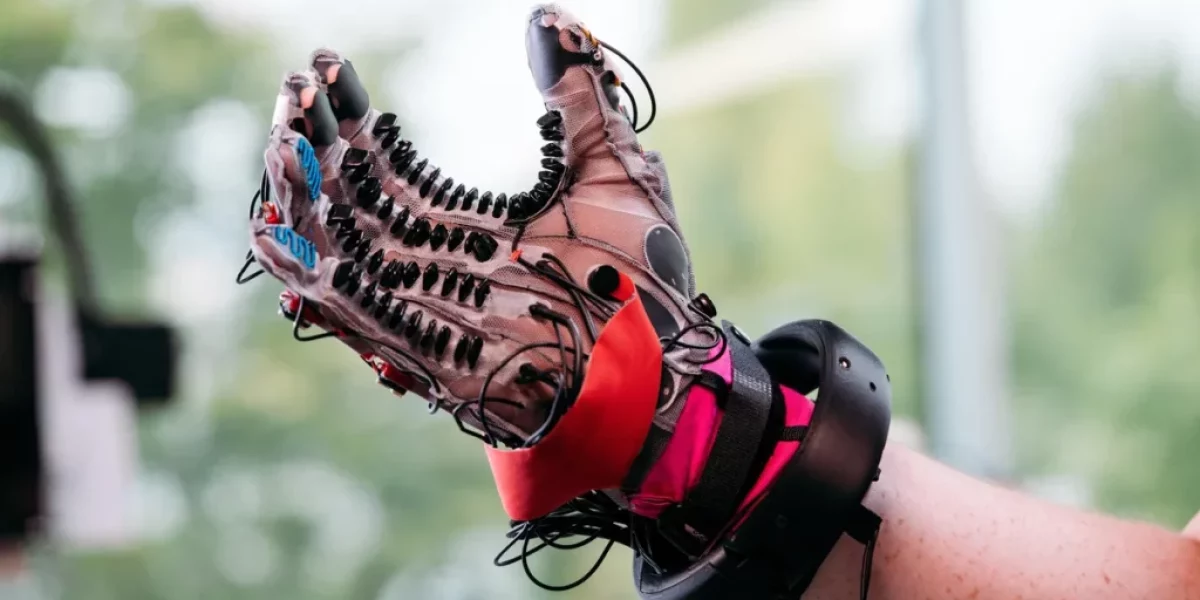Meta Wants You To ‘Feel’ It’s Metaverse With These Haptic VR Gloves
As the much discussed Facebook-to-Meta transition rolls on, kernels of information continue to be revealed giving us a clearer picture of how the platform is going to look when it’s all said and done. While we know that Meta and its figurehead Mark Zuckerberg have their feet squarely planted in the realm of virtual and augmented reality, it remains to be seen how the company plans to differentiate their platform from other VR operators.
The latest clue comes in the form of their announcement on the development of ‘VR gloves’, a feature which could add a whole new layer of immersion to the virtual reality experience. Designed in Meta’s in-house Reality Labs, the haptic gloves have reportedly been in development since the company acquired VR start-up Oculus back in 2014. The gloves are designed to boldly go where no VR product has thus far been able to go and create the ability for the wearer to ‘feel’ with their hands while in the metaverse. This will (in theory) be done through a series of inflatable pockets in the gloves that, through the use of sensors, cameras and motors, will fluctuate in air pressure in the areas of the hands that are being activated as you ‘touch’ certain objects in the virtual or augmented world, simulating the real-life sensation of touch. Of course, given that the technology is still in the prototype stage, there is still plenty of work to be done until it will be ready for commercial use.
One of the main areas of improvement needed before the gloves can be implemented into the product is expanding and refining how different textures are felt. For example, right now the gloves cannot accurately replicate the specific texture of dog’s hair, hampering the ability for the gloves to provide a comprehensively realistic VR or AR experience. Meta is also aiming to significantly reduce the size of the gloves and make the gloves wireless before putting them onto the market, which it believed might not be for at least a few years.
It’s also worth noting that Meta is already facing accusations of plagiarism for the technical design of the gloves. Seattle-based manufacturers named HaptX claims that Meta’s prototype adopts several features patented by the company and it is planning on pursuing legal action, which could slow down the development process even further for Meta. Still, the prototype displays the fascinating potential for where the technology is headed and if developments go as planned, VR experience we know now could look vastly different in just a few years’ time.
Top image courtesy of Meta Reality Labs.

